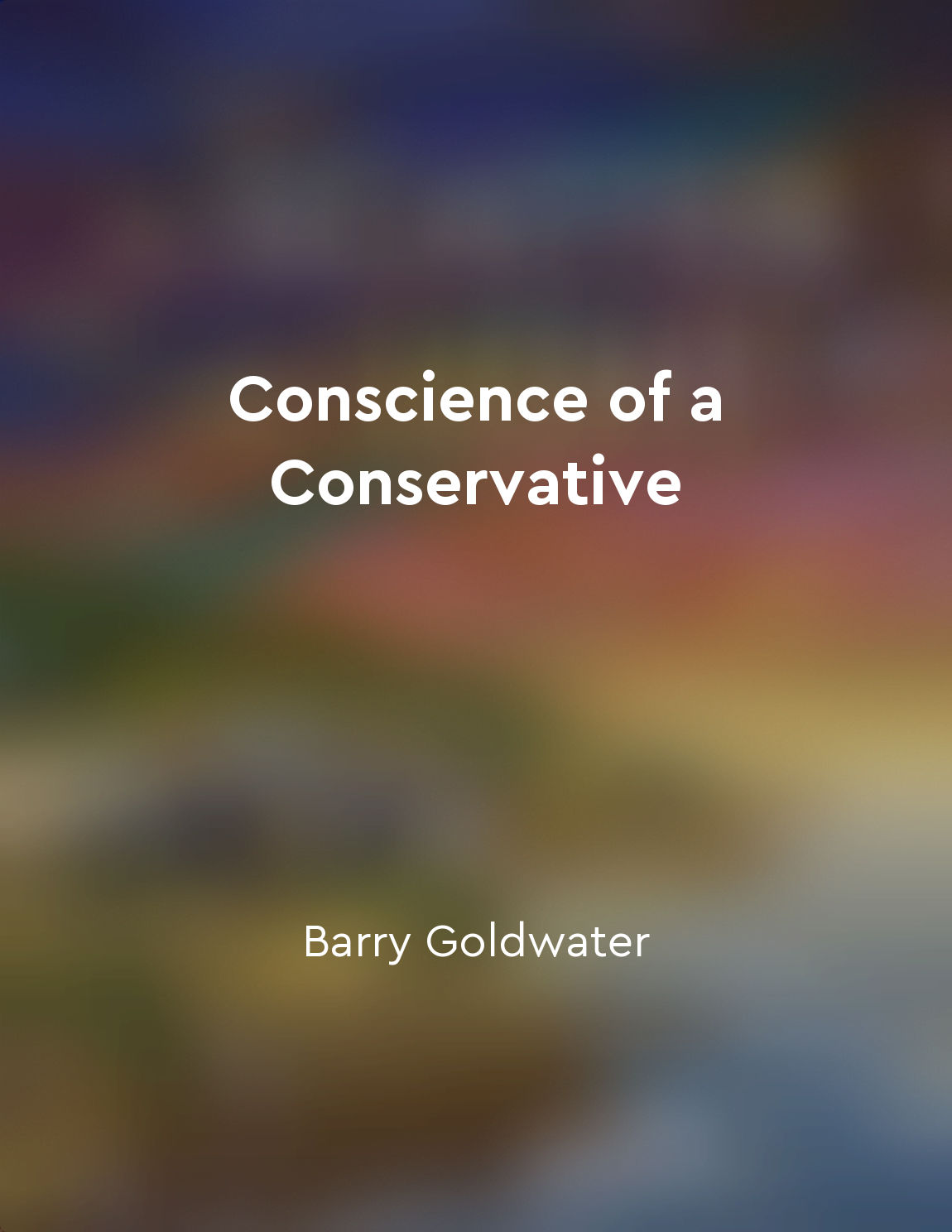Limits of government power from "summary" of Political Philosophy by Henry Brougham Baron Brougham and Vaux
The concept of limits on government power is a critical component of any political system. Without such constraints, the potential for abuse of power and tyranny is always present. In a well-ordered society, the government's authority should be clearly defined and restricted to ensure the protection of individual rights and liberties. One of the primary ways to establish limits on government power is through the rule of law. This principle holds that all individuals, including those in positions of authority, are subject to the law and must abide by its provisions. By creating a legal framework that governs the actions of government officials, the rule of law helps to prevent arbitrary exercises of power and ensures accountability. Another important mechanism for limiting government power is the separation of powers. This principle, famously articulated by Montesquieu, involves dividing governmental authority among different branches – typically the executive, legislative, and judicial branches. By dispersing power in this way, each branch acts as a check on the others, preventing any one branch from becoming too dominant. In addition to the rule of law and the separation of powers, the concept of federalism can also serve to limit government power. Federalism involves the division of authority between a central government and regional governments, such as states or provinces. This division of power helps to prevent the central government from becoming too powerful and allows for greater responsiveness to local needs and preferences. Furthermore, the protection of individual rights is a crucial aspect of limiting government power. By enshrining certain rights – such as freedom of speech, freedom of religion, and the right to due process – in a constitution or bill of rights, governments are constrained in their ability to infringe upon these fundamental liberties. This ensures that individuals are shielded from government overreach and abuse.- The concept of limits on government power is essential for the preservation of a free and just society. By establishing legal constraints, separating powers, practicing federalism, and protecting individual rights, governments can be held accountable and prevented from exceeding their rightful authority. Only through such limitations can the potential for tyranny be mitigated, and the dignity and autonomy of individuals upheld.
Similar Posts
Rulers should honor their word but be flexible
It is essential for rulers to maintain their reputation for integrity and honesty, as these qualities inspire trust and loyalty...

Welfare programs should encourage selfreliance
The idea that welfare programs should encourage self-reliance is a fundamental principle that must guide our approach to social...

Individual choice is essential
The freedom to choose is a fundamental aspect of human existence. It is through the exercise of individual choice that we expre...
Rational choice
The concept of rational choice plays a crucial role in ethical and political theory. Rational choice theory assumes that indivi...
Criminal behavior cannot go unpunished
In the eyes of the law, justice must be served. Criminal behavior cannot simply be swept under the rug, ignored, or excused. It...
Migration as a key issue in contemporary politics
Migration has become a critical issue in contemporary politics due to various factors such as economic globalization, conflict,...
Political debates shape policy decisions
Political debates are not mere intellectual exercises designed to entertain the public; rather, they play a crucial role in sha...
Comptroller and Auditor General checks government expenditures
The Comptroller and Auditor General (CAG) of India plays a crucial role in overseeing the government's financial activities. Th...

Sustainable development requires property rights
The essential foundation of sustainable development lies in the protection of property rights. Without property rights, individ...

